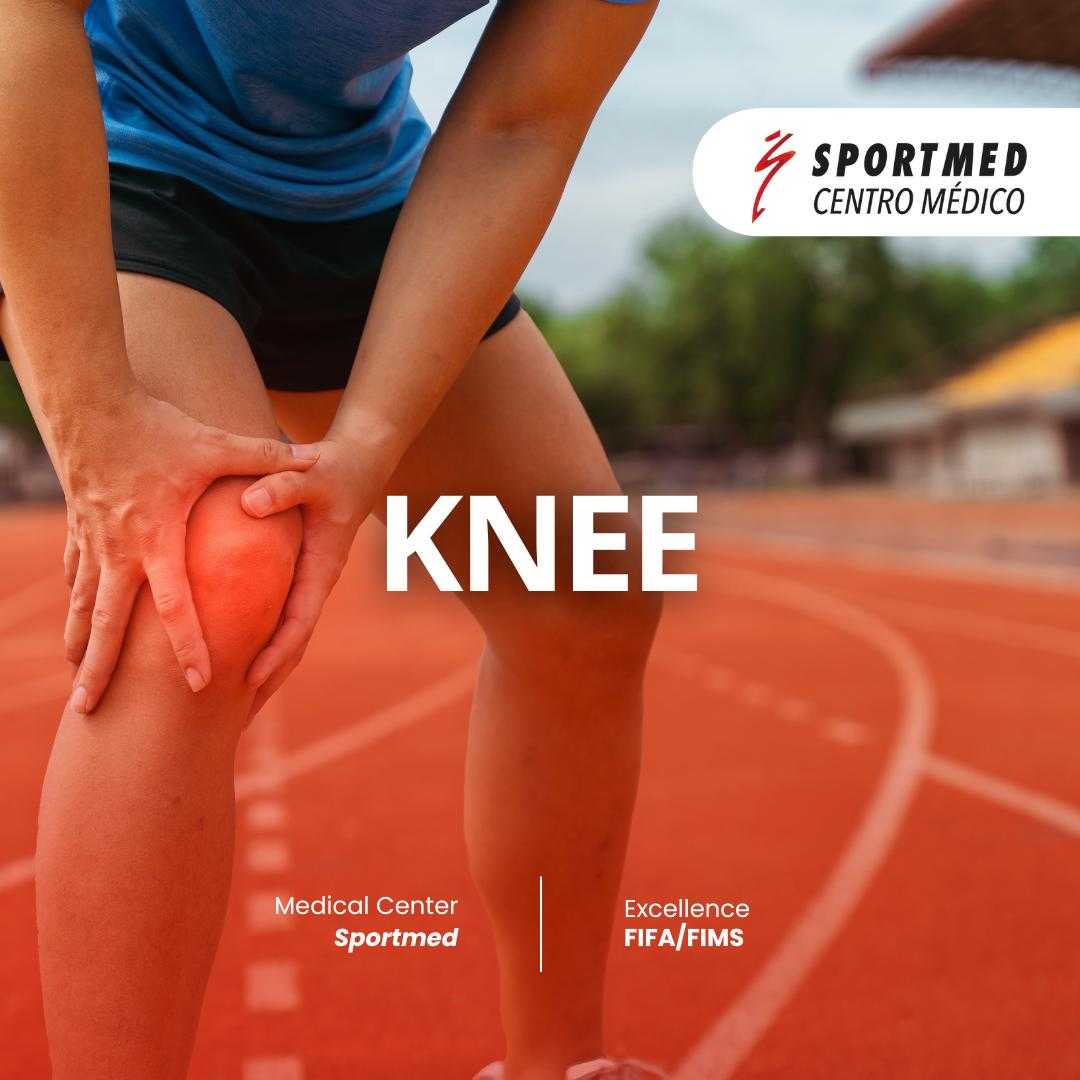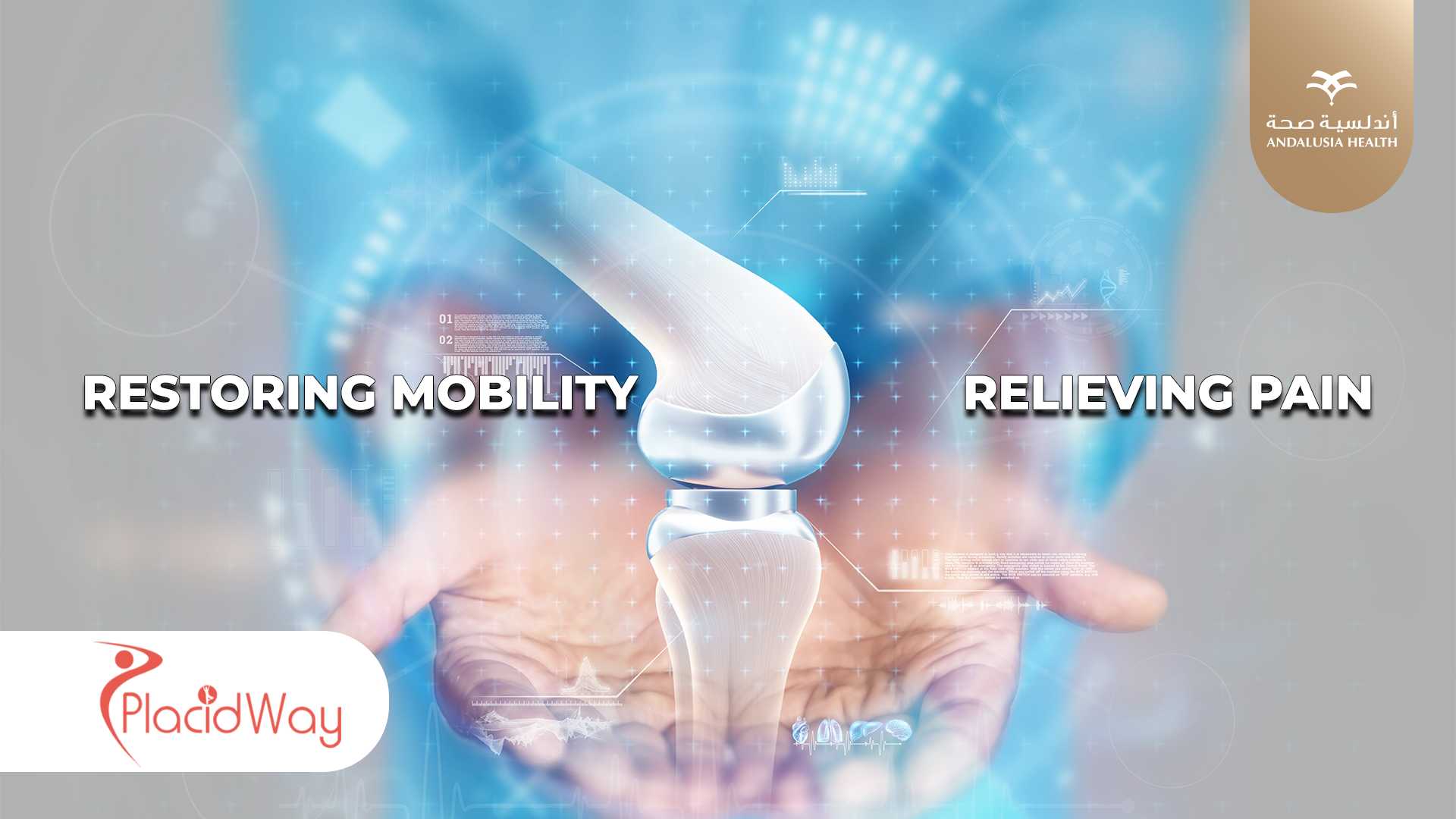
Finding Lasting Relief: Exploring Stem Cell Treatment for Rheumatoid Arthritis
Living with Rheumatoid Arthritis (RA) can be a daily struggle, marked by persistent pain, stiffness, and debilitating fatigue. This chronic autoimmune disease, where the body's immune system mistakenly attacks its own tissues—primarily the joints—can significantly impact your quality of life, making even simple tasks challenging. Many individuals grappling with RA constantly search for "new treatments for RA" or "rheumatoid arthritis alternative treatment" to find a path toward lasting relief and improved mobility.
For those who haven't found sufficient relief with conventional therapies, or are looking for innovative options, stem cell treatment for Rheumatoid Arthritis is emerging as a promising area of medical exploration. This advanced therapy focuses on harnessing the body's natural healing capabilities to reduce inflammation, balance the immune system, and potentially repair damaged joint tissues. It represents a shift from simply managing symptoms to addressing the underlying immune dysregulation and tissue damage that characterize RA.
If you're experiencing symptoms like persistent joint pain, swelling, tenderness, morning stiffness lasting more than 30 minutes, or a pervasive feeling of fatigue, you understand the profound impact RA can have. These symptoms often appear symmetrically, affecting the same joints on both sides of the body, such as the hands, wrists, and feet. While the exact causes of RA are still being researched, it's understood to involve a complex interplay of genetic predisposition and environmental triggers, leading to an overactive immune response.
The journey to managing RA can be long and frustrating, prompting many to consider options beyond their local healthcare systems. Medical tourism, particularly for stem cell therapy, offers a unique opportunity to access cutting-edge treatments in specialized clinics worldwide. This comprehensive guide will delve into what stem cell treatment for RA entails, how it works, its potential benefits, and why patients globally are choosing to explore this option abroad to regain control over their health and live more comfortably.
What are the common symptoms of Rheumatoid Arthritis?
Understanding the signs of Rheumatoid Arthritis is the first step towards seeking effective treatment. Patients often search for "RA symptoms in hands and feet" or "what does RA pain feel like" to identify if their experiences align with the condition. RA symptoms can vary in intensity and may come and go, but they typically involve:
- Joint Pain and Tenderness: Often symmetrical, affecting the same joints on both sides of the body (e.g., both wrists, both knees). The pain can be dull or throbbing and is worse after periods of inactivity.
- Joint Swelling and Warmth: Inflammation causes the joint lining to thicken, leading to visible swelling and a warm sensation to the touch.
- Morning Stiffness: A hallmark symptom, often lasting 30 minutes or more after waking up or prolonged rest. It can significantly hinder mobility at the start of the day.
- Fatigue: A profound and persistent tiredness that isn't relieved by rest, often described as one of the most debilitating symptoms.
- Weakness: Generalized muscle weakness can occur due to inflammation and decreased activity.
- Low-grade Fever and Weight Loss: Systemic inflammation can sometimes lead to mild fever and unintended weight loss.
- Rheumatoid Nodules: Firm lumps that appear under the skin, often near affected joints like the elbows or knuckles, though they can also form in internal organs.
- Joint Deformity: Over time, chronic inflammation can cause joint erosion and damage, leading to permanent deformities, particularly in the hands and feet. This is why many look for "rheumatoid arthritis hands deformity images" to understand the progression.
Early diagnosis and intervention are crucial to prevent or minimize joint damage and manage the systemic effects of RA. If you recognize these symptoms, it's important to consult with a rheumatologist.
What causes Rheumatoid Arthritis and who is at risk?
Rheumatoid Arthritis is a complex autoimmune disease, meaning your immune system mistakenly attacks healthy cells in your body. While the exact trigger isn't fully understood, a combination of factors is believed to contribute to its development. Patients often ask, "is RA hereditary?" or "can stress cause RA?" when trying to understand their condition.
Causes of Rheumatoid Arthritis:
- Autoimmune Response: The primary cause is a misguided immune system response that targets the synovium (the lining of the membranes that surround your joints), leading to inflammation, pain, and eventual joint damage.
- Genetics: A predisposition to RA can be inherited. While you don't inherit RA itself, you can inherit genes that increase your risk. People with certain HLA (human leukocyte antigen) genes are more likely to develop RA.
- Environmental Triggers: For individuals with a genetic predisposition, certain environmental factors can "switch on" the disease.
- Smoking: This is a significant risk factor, increasing both the likelihood and severity of RA.
- Infections: Some viral or bacterial infections are thought to potentially trigger RA in genetically susceptible individuals, though more research is needed.
- Exposure to certain substances: Silica dust and asbestos have been linked to an increased risk.
Who is at risk?
- Sex: Women are two to three times more likely than men to develop RA.
- Age: RA can occur at any age, but it most commonly begins between the ages of 40 and 60.
- Family History: If a close family member has RA, your risk is increased.
- Smoking: Current or former smokers have a higher risk.
- Obesity: Being overweight or obese can increase the risk of developing RA, and can also make symptoms worse.
- Prior Live Births: Women who have never given birth may be at a slightly increased risk.
Understanding these risk factors can help in early detection and management, but it's important to remember that having a risk factor doesn't guarantee you'll develop RA.
How does stem cell treatment for Rheumatoid Arthritis work?
Stem cell treatment for Rheumatoid Arthritis is not about replacing damaged joints but rather about modulating the immune system and fostering an environment for healing. This innovative approach offers a different paradigm than traditional immunosuppressive drugs. When patients inquire about "stem cell therapy mechanism RA" or "types of stem cells for arthritis," they are often referring to:
The primary type of cells used are Mesenchymal Stem Cells (MSCs). These are multipotent stromal cells that can differentiate into various cell types (like bone, cartilage, muscle, and fat cells) and, crucially, have potent immunomodulatory and anti-inflammatory capabilities. Think of MSCs as tiny, intelligent repair crews that also act as peacekeepers for your immune system.
How MSCs work in RA:
- Immune System Modulation: MSCs interact with various immune cells, helping to calm the overactive immune response that causes RA. They can suppress the proliferation of inflammatory cells and promote the production of regulatory cells that restore immune balance. This is like a negotiator calming an aggressive argument between different parts of the immune system.
- Anti-inflammatory Effects: MSCs release a range of potent anti-inflammatory molecules that directly reduce inflammation in the joints and throughout the body, alleviating pain and swelling.
- Tissue Regeneration and Repair: While their primary role in RA treatment is immunomodulation, MSCs also have the potential to help regenerate damaged cartilage and other joint tissues, though this is a secondary effect and more pronounced in osteo- rather than rheumatoid arthritis. In RA, it's more about slowing down damage and reducing inflammation.
- Angiogenesis Regulation: MSCs can influence blood vessel formation, which is often abnormal in inflamed RA joints, contributing to disease progression.
Sources and Administration:
MSCs can be obtained from several sources:
- Autologous: From the patient's own body, typically bone marrow or adipose (fat) tissue. This minimizes the risk of rejection.
- Allogeneic: From a healthy donor, often umbilical cord tissue or Wharton's Jelly. These cells are considered "immune privileged," meaning they are less likely to trigger an immune response from the recipient, and can be prepared in larger quantities.
The stem cells are usually administered intravenously (IV) to exert systemic effects throughout the body, or sometimes directly injected into severely affected joints, depending on the clinic's protocol and the patient's condition. The goal is to provide sustained relief and potentially halt the progression of joint damage.
Am I a suitable candidate for stem cell therapy for RA?
Deciding whether stem cell therapy is right for you involves a comprehensive assessment by medical professionals. Patients often search for "who qualifies for stem cell treatment RA" or "eligibility for RA stem cell therapy" to understand if this advanced option is available to them. While specific criteria may vary between clinics and protocols, general guidelines include:
- Confirmed Diagnosis of Rheumatoid Arthritis: You must have a clear diagnosis of RA, usually established by a rheumatologist, with supporting lab tests (e.g., rheumatoid factor, anti-CCP antibodies, ESR, CRP) and imaging studies.
- Failure of Conventional Treatments: Typically, candidates have tried and not responded adequately to traditional RA medications, such as DMARDs (disease-modifying antirheumatic drugs) or biologics. Stem cell therapy is often considered when other treatments have failed to provide sufficient control over the disease.
- Overall Good Health: You should be in generally good health, without severe co-existing conditions like uncontrolled diabetes, active infections, or significant cardiovascular disease that could complicate the procedure or recovery.
- No Active Cancer: Patients with a history of active cancer, especially within the last five years, may not be eligible, as the regenerative potential of stem cells is a concern in oncology.
- Not Pregnant or Breastfeeding: Women who are pregnant or breastfeeding are generally excluded from stem cell treatments.
- Realistic Expectations: It's crucial for patients to understand that while stem cell therapy offers promise, it is not a guaranteed cure, and results can vary. A reputable clinic will discuss potential outcomes and limitations openly.
- Age Considerations: While there isn't usually a strict upper age limit, the patient's overall health and ability to undergo the procedure are more critical factors.
A detailed medical history, physical examination, and review of your current medications (some may need to be paused or adjusted) will be conducted by the specialist to determine your suitability. This individualized assessment ensures the treatment is as safe and effective as possible for your specific condition.
What can I expect during and after the stem cell procedure for RA?
Navigating any new medical procedure comes with questions about the experience itself and the recovery process. Patients often search for "RA stem cell therapy recovery time" and "post stem cell treatment RA" to mentally prepare. Here’s a general overview of what you can expect:
During the Procedure:
- Cell Collection (if autologous): If your own stem cells are used, a minor procedure to collect bone marrow (usually from the hip) or adipose tissue (fat, via liposuction) will be performed. This is typically done under local anesthesia with light sedation.
- Cell Preparation: The collected cells are then processed in a sterile laboratory to isolate and concentrate the stem cells, which can take a few hours.
- Cell Administration: Once prepared, the stem cells are administered. For RA, this is most commonly done intravenously (IV infusion), similar to a regular drip. In some cases, direct injections into specific affected joints may also be part of the protocol. The administration itself is usually quick and minimally uncomfortable.
- Duration: The entire procedure, from collection (if applicable) to administration, typically takes a few hours, and you will likely be monitored for a short period afterward.
After the Procedure (Recovery & Expectations):
- Minimal Downtime: Most patients experience very little downtime. You might feel some soreness or bruising at the collection site (if autologous cells were used) or mild fatigue. Many can resume light activities within a day or two.
- Gradual Improvement: Unlike immediate relief, the effects of stem cell therapy are often gradual. Stem cells need time to integrate, modulate the immune system, and exert their anti-inflammatory and regenerative effects. Patients typically report initial improvements in energy levels, followed by reduced joint pain and stiffness over several weeks to months.
- Potential Initial Flare-up: In some cases, a temporary increase in symptoms (a "flare") can occur in the first few days or weeks as the immune system adjusts. This is usually transient.
- Follow-up Care: Your clinic will typically provide a post-treatment plan, which may include guidelines on activity, diet, and a schedule for follow-up consultations or remote check-ins. Long-term monitoring of your RA symptoms and medication may be necessary.
- Realistic Outcomes: While many patients experience significant improvements in pain, mobility, and overall quality of life, results can vary. It’s important to maintain realistic expectations and understand that stem cell therapy is part of a broader health management strategy.
Remember that open communication with your medical team before, during, and after the procedure is key to a positive experience and optimal outcomes.
What are the potential risks and side effects of stem cell treatment for RA?
Patient safety is paramount, and understanding potential risks is a crucial part of informed decision-making. Common patient questions include "is stem cell treatment for RA safe?" and "side effects stem cell therapy RA." When performed in reputable and accredited medical facilities, stem cell therapy for RA using MSCs is generally considered to have a favorable safety profile compared to some conventional RA treatments.
Potential Risks and Side Effects (Generally Mild and Temporary):
- Soreness/Bruising at Collection Site (if autologous): If your own cells are harvested from bone marrow or fat, you might experience temporary pain, bruising, or swelling at the donor site.
- Injection Site Discomfort: If cells are injected directly into a joint or intravenously, there might be temporary pain, redness, or swelling at the injection or IV site.
- Mild Systemic Reactions: Some patients report transient flu-like symptoms, fever, chills, or headache for 24-48 hours after IV infusion. This is often part of the body's immune response to the new cells.
- Allergic Reaction: While rare, an allergic reaction to the cell culture medium or the cells themselves is possible. Reputable clinics have protocols in place to manage such events.
- Infection: Any invasive procedure carries a small risk of infection. This risk is minimized by strict sterile techniques in accredited facilities.
Less Common or Theoretical Concerns:
- Tumor Formation: This is a highly debated and largely unsubstantiated concern with MSCs used in therapeutic settings. While embryonic stem cells have a higher risk, adult MSCs, particularly when appropriately isolated and cultured, have shown a very low, if any, risk of tumor formation in numerous studies and clinical trials. Reputable clinics use rigorous screening and processing protocols to mitigate any such theoretical risks.
- Immune Rejection (with allogeneic cells): While MSCs are considered "immune privileged" and generally do not trigger a strong immune response, a mild reaction is theoretically possible. However, significant rejection is extremely rare with these types of cells.
- Contamination: The risk of cell contamination is minimal when cells are processed in a certified GMP (Good Manufacturing Practice) laboratory.
It is essential to discuss all potential risks with your medical provider and choose a clinic that adheres to stringent safety protocols, has experienced medical staff, and transparently shares its treatment methodologies and outcomes.
How much does stem cell treatment for Rheumatoid Arthritis cost worldwide?
One of the primary reasons patients explore options abroad is the significant difference in cost, alongside access to certain therapies. Many search for "cost of stem cell therapy RA" or "affordable stem cell treatment abroad." The price of stem cell treatment for Rheumatoid Arthritis is influenced by several factors:
- Country and Clinic: Medical costs vary dramatically by country due to differing healthcare systems, regulations, and living expenses. Highly specialized or renowned clinics may also charge more.
- Type of Stem Cells: Autologous (from your own body) procedures involve collection costs. Allogeneic (donor) cells might have different sourcing and preparation costs.
- Number of Injections/Infusions: A single treatment session will cost less than a protocol involving multiple infusions or a series of injections over time.
- Severity of Condition: More severe cases might require a more intensive treatment plan, impacting the overall cost.
- Inclusions: Some packages include consultations, diagnostics, follow-up care, accommodation, or airport transfers, while others list only the core procedure.
Worldwide Cost Comparison for Stem Cell Treatment for RA (Estimated Ranges):
| Country | Estimated Cost Range (USD) | Notes |
|---|---|---|
| USA | $10,000 - $30,000+ | Higher cost, but strict regulations; often investigational. |
| Mexico | $7,000 - $15,000 | Popular medical tourism destination; good value. |
| Costa Rica | $8,000 - $16,000 | Known for high-quality medical services, often combined with recovery vacation. |
| Germany | $12,000 - $25,000+ | Advanced research and high standards; costs can vary significantly. |
| India | $5,000 - $12,000 | Cost-effective, emerging hub for advanced therapies. |
| Thailand | $6,000 - $14,000 | Combines quality care with tourism opportunities. |
It's crucial to obtain detailed quotes from multiple clinics and understand what exactly is included in the price. Always factor in travel, accommodation, and potential unforeseen expenses when budgeting for treatment abroad.
Why consider traveling abroad for Rheumatoid Arthritis stem cell treatment?
The decision to seek medical treatment in another country, often referred to as "medical tourism," is driven by a combination of factors. For those with Rheumatoid Arthritis, the reasons to explore stem cell therapy abroad are compelling:
- Access to Advanced Therapies: In some countries, stem cell treatments, particularly for conditions like RA, may be more widely available or part of established clinical protocols compared to others where they might still be considered experimental or are subject to different regulatory approvals (e.g., FDA in the US). This is a key reason patients search for "stem cell tourism benefits."
- Cost-Effectiveness: As seen in the cost comparison, the price of stem cell treatment in certain countries can be significantly lower than in Western nations, even when factoring in travel and accommodation. This makes advanced care more accessible to a broader range of patients.
- Shorter Waiting Times: Healthcare systems in some countries may have long waiting lists for specialized treatments. Traveling abroad can offer faster access to care, allowing patients to begin their treatment journey sooner.
- High-Quality Care and Expertise: Many international clinics specialize in stem cell therapies and boast state-of-the-art facilities, highly trained medical professionals, and robust research programs. Countries like Germany, Mexico, and Thailand have developed strong reputations for medical excellence.
- Privacy and Anonymity: Some patients prefer the discretion and privacy that receiving treatment in another country can offer.
- Combining Treatment with Travel: The opportunity to recover in a beautiful, relaxing environment, often combined with a vacation, can reduce stress and contribute positively to the healing process.
Choosing to travel for treatment is a significant personal decision that requires careful research and planning, but for many, the benefits outweigh the challenges, offering new hope for managing their RA.
How can I ensure safety and quality when choosing a clinic for RA stem cell therapy abroad?
Ensuring safety and quality is paramount when considering any medical procedure abroad, especially for innovative treatments like stem cell therapy. Patients frequently search for "best stem cell clinics abroad RA" and "safe stem cell therapy overseas" to make informed choices. Here's a checklist to guide your decision:
- Accreditation and Certification: Look for international accreditations such as Joint Commission International (JCI), which signifies adherence to rigorous patient safety and quality standards. Local government licensing and certifications are also important.
- Doctor's Qualifications and Experience: Verify that the doctors are board-certified specialists (rheumatologists, immunologists, or regenerative medicine specialists) with extensive experience in stem cell therapy for RA. Inquire about their training, affiliations, and track record.
- Transparency in Treatment Protocols: A reputable clinic will be transparent about the type of stem cells used (e.g., MSCs), their source (autologous, allogeneic – umbilical cord, adipose), the processing methods, and the exact administration protocols. They should clearly explain the scientific basis for their approach.
- Facility Standards: The clinic should have modern, sterile facilities, including a certified laboratory for stem cell processing (e.g., GMP-compliant). Tour the facility virtually if possible.
- Patient Testimonials and Reviews: Seek out genuine patient success stories and reviews. While individual results vary, a pattern of positive experiences and professional conduct is a good indicator.
- Comprehensive Pre- and Post-Treatment Care: A good clinic will provide thorough pre-treatment evaluations, clear communication during your stay, and a structured plan for post-treatment follow-up, including remote consultations.
- Ethical Guidelines and Regulations: Understand the ethical and legal framework governing stem cell therapies in the destination country. Ensure the clinic adheres to established scientific and medical guidelines.
- Clear Communication: Ensure there are no language barriers and that all your questions are answered clearly and thoroughly by the medical team.
Partnering with a reputable medical tourism facilitator like PlacidWay can significantly simplify this process, as they often vet clinics and connect you with trusted providers.
What are the real-world experiences and success stories of RA patients with stem cell therapy?
While scientific research and clinical trials continue to evolve, many patients who have undergone stem cell therapy for Rheumatoid Arthritis share compelling personal stories of significant improvement. These "stem cell therapy for RA testimonials" and "RA stem cell treatment reviews" often provide hope and insight into what life might be like post-treatment.
Common themes emerging from patient experiences include:
- Reduced Pain and Swelling: Many report a noticeable decrease in chronic joint pain and reduction in swelling and tenderness, which are hallmark symptoms of RA. This can lead to a significant improvement in daily comfort.
- Improved Mobility and Flexibility: With less pain and inflammation, patients often regain better range of motion in their affected joints, making everyday activities like walking, dressing, or grasping objects much easier.
- Decreased Morning Stiffness: A common and debilitating symptom of RA, morning stiffness, is frequently cited as being significantly reduced or even disappearing for extended periods.
- Increased Energy Levels and Reduced Fatigue: The systemic anti-inflammatory effects of stem cells can combat the chronic fatigue associated with RA, leading to increased energy and vitality.
- Reduced Reliance on Medications: Some patients are able to reduce their dosage of conventional RA medications (like DMARDs or steroids) or even discontinue some, under the strict guidance of their doctors, due to improved disease control.
- Enhanced Quality of Life: Ultimately, these improvements contribute to a vastly enhanced quality of life, allowing individuals to engage more fully in work, hobbies, and social activities that RA previously made impossible.
It's important to remember that stem cell therapy is not a universal cure, and individual responses can vary. Factors such as the severity and duration of RA, the specific stem cell protocol, and overall patient health can all influence outcomes. However, for many, these real-world success stories underscore the potential of stem cell treatment to offer profound relief and a renewed sense of well-being for those living with Rheumatoid Arthritis.
Take the Next Step with PlacidWay
Ready to explore treatment options abroad? Discover top clinics, compare prices, and get a free quote tailored to your needs with PlacidWay.
Stem Cell Therapy Abroad










Share this listing